Turning Limitations into Opportunities: HSE Round Table Explores Employment for Students with Disabilities
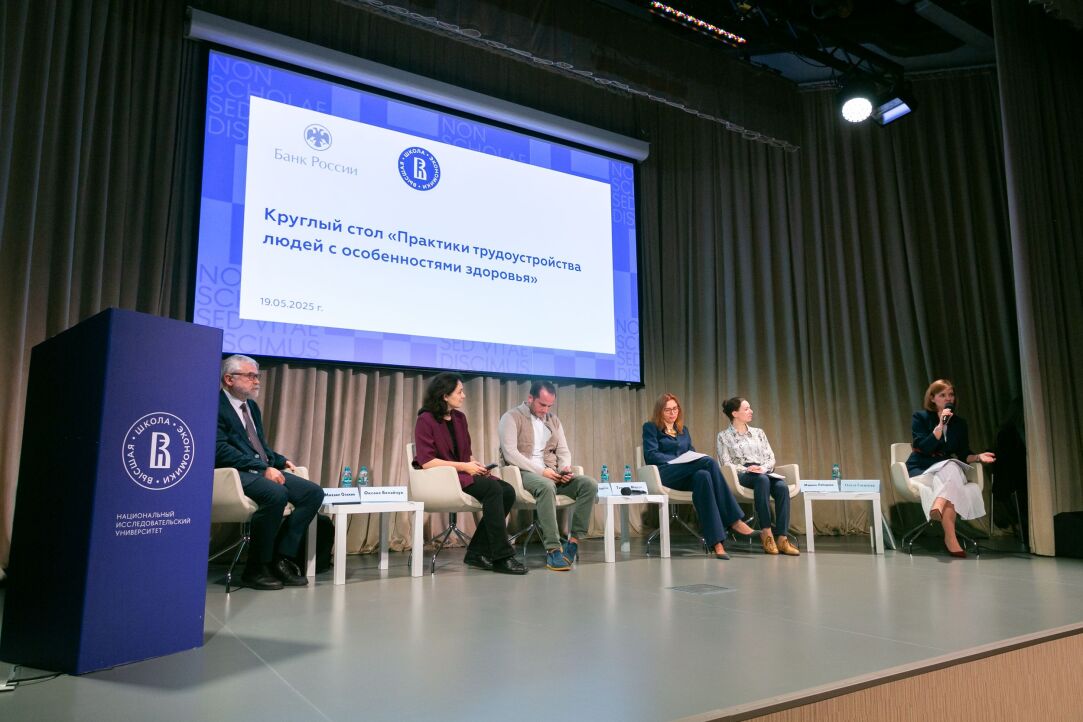
Around 11 million people in Russia live with a disability. Of these, approximately 27% are of working age, yet only one in four is employed. HSE University and the Bank of Russia jointly organised a round table titled ‘Employment Practices for Students with Disabilities and Health Limitations.’
‘At HSE, we place particular emphasis on social support, inclusion, and the professional development of our students. We strive to ensure that every student, regardless of their health status, has the opportunity to fully utilise their talents and find their professional path,’ said Andrey Saak, Head of the HSE Office for Target Student Support, in his welcoming address.
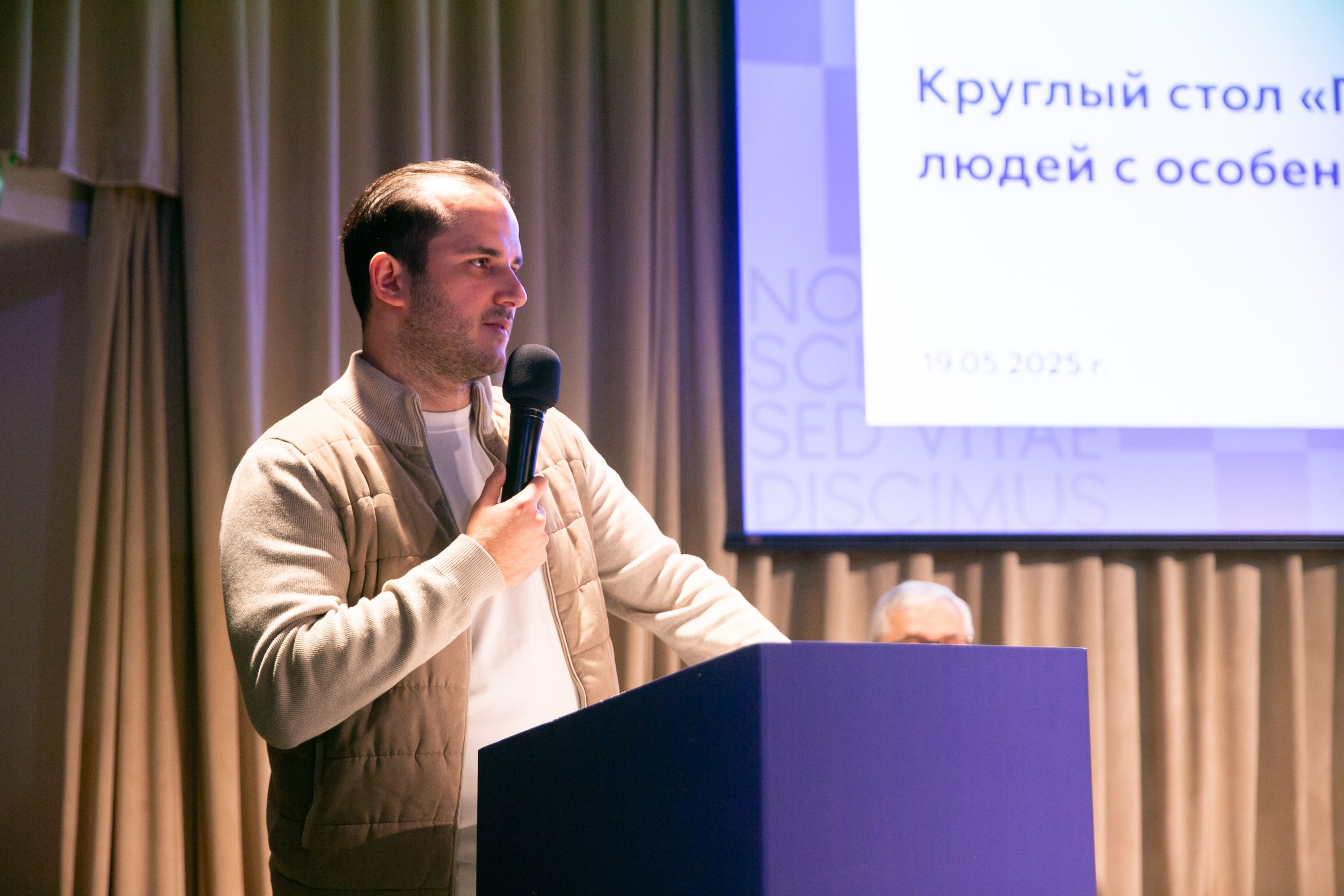
He highlighted the example of Yuliya Smirnova—an international-level Master of Sport, participant in World Cup events, and student of the Master's programme in International Sports Management, Marketing, and Law. She organises wheelchair tennis events and recently launched the project Accessible Podcast. Her story clearly demonstrates that talent and determination can overcome any barrier.
Another example of successful self-realisation is Vladimir Malyuchkov, a Master's student at the HSE Faculty of Creative Industries and creator of the tactile exhibition Touch the History of Victory, which was showcased at the university and several federal institutions. This unique exhibition allowed visually impaired visitors to physically engage with the history of victory. Its success proves that inclusive initiatives by early-career professionals can receive recognition at the highest levels.
‘It is vital that the employment sector becomes increasingly inclusive and open to talented professionals. Only by uniting the efforts of universities, employers, and the state can we remove the employment barriers for people with disabilities. I am confident that today’s round table will help us develop new approaches to these challenges and bring us closer to our shared goal—a society of equal opportunities, where everyone can fulfil their professional potential,’ Andrey Saak emphasised.
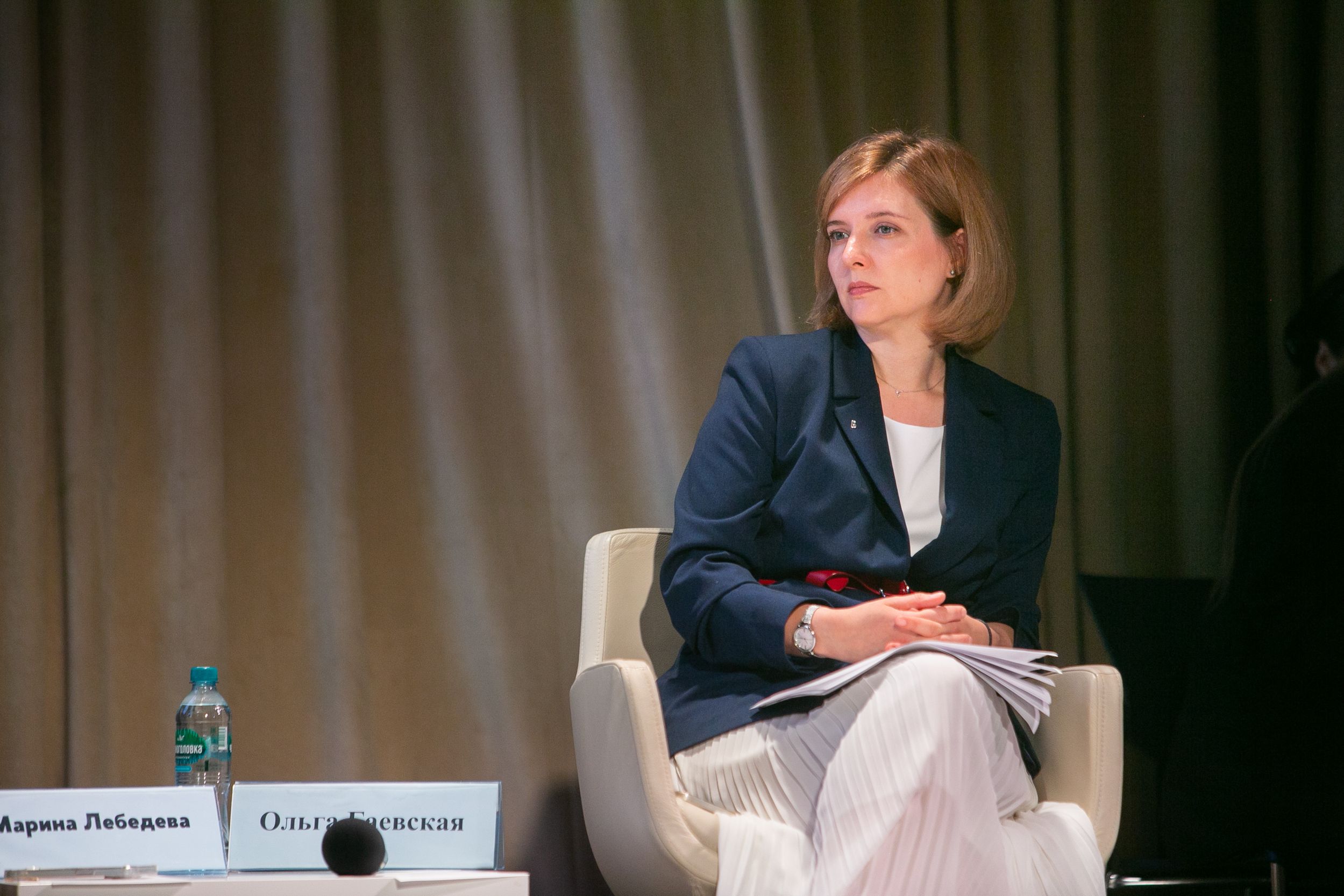
Olga Gaevskaya, Head of the HSE Office for Alumni Relations and Career Development, noted that approximately 11 million people with disabilities currently reside in the Russian Federation, with 27% of them of working age. ‘Only about 25% of those of working age are currently employed. This represents a significant amount of untapped human potential,’ she pointed out.
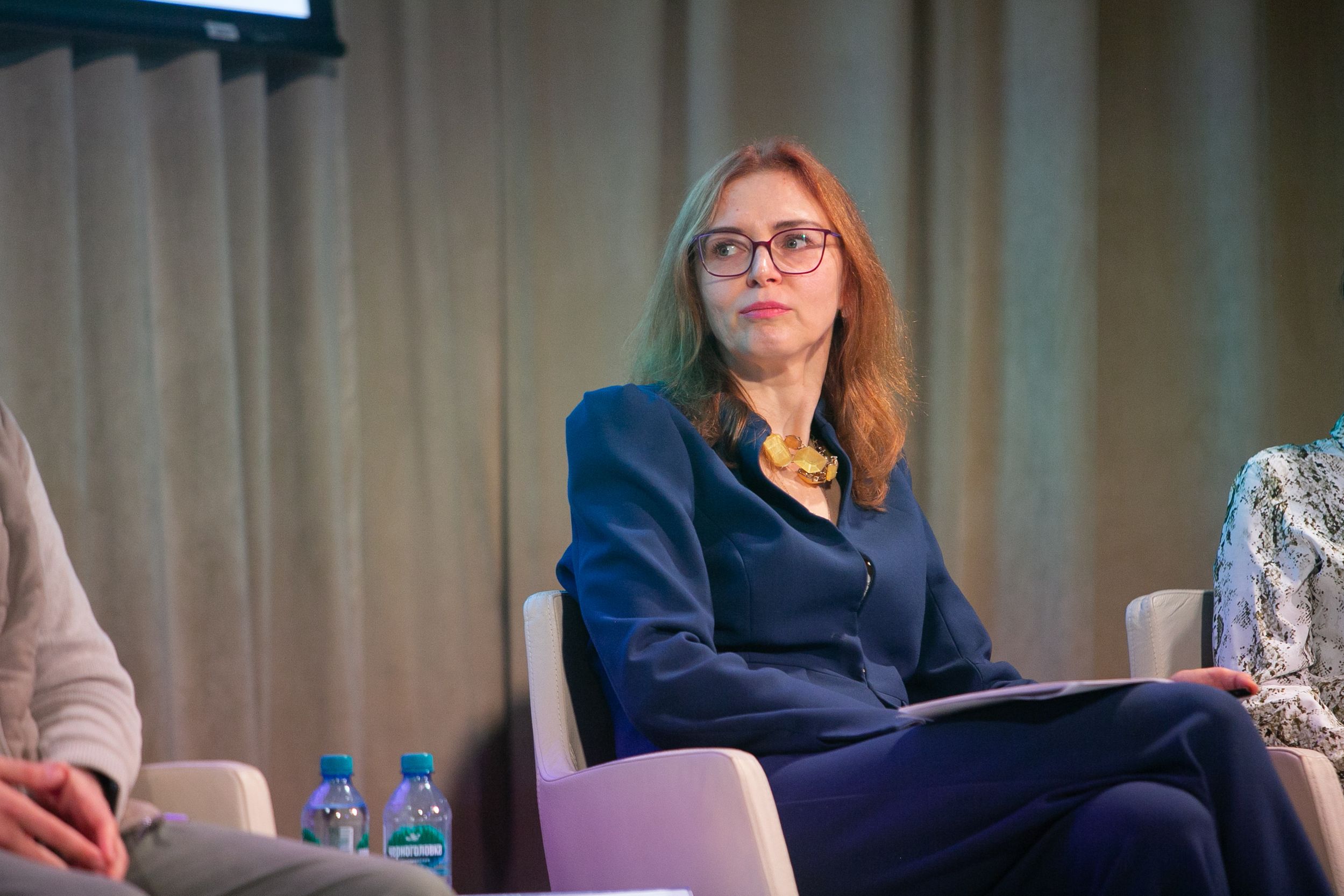
Speaking about the challenges of inclusive hiring, Tatiana Miruk, Deputy Head of the Risk Analysis Service at the Bank of Russia, placed particular emphasis on internships, work placements, and first jobs. ‘It is precisely during this period when young people gain professional experience, develop skills, and build self-confidence—all essential for successful future employment. Supporting early-career professionals with disabilities, adapting workplaces, providing individual educational pathways and mentorship—these are all key elements in creating a truly inclusive labour market,’ she stressed.
Nikita Gayduk, a consultant in the Human Resources Department at the Bank of Russia, shared details of the Bank’s internship programme for students with disabilities. Unlike standard internships, this one runs for a full year and is divided into two parts: 70% is dedicated to independent task performance by the intern, and 30% to practical training with colleagues.
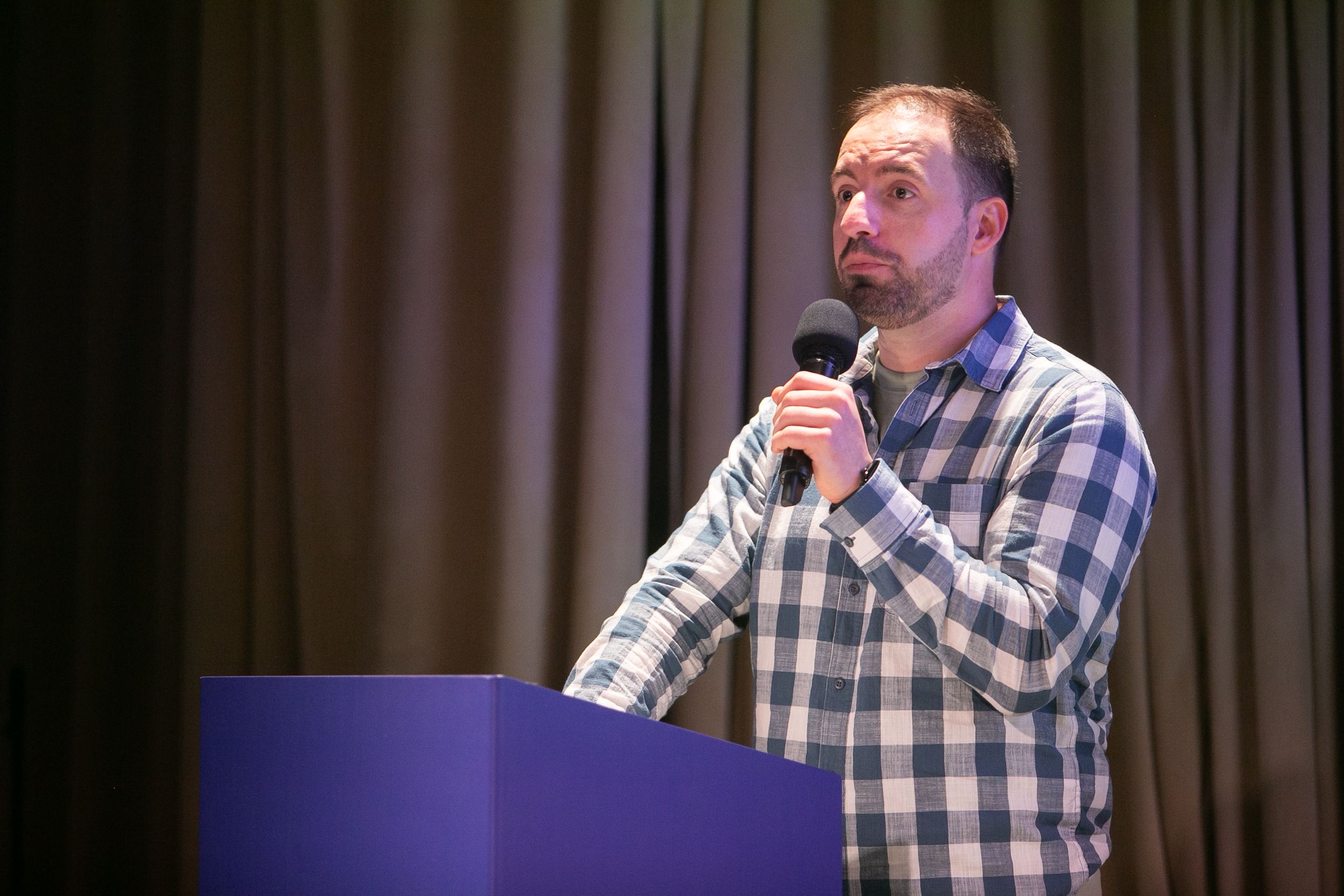
‘Another important aspect is regular feedback sessions. These are vital to us, because it is not just interns learning from our colleagues—we also learn from the interns how we can improve our accessibility and inclusivity,’ he noted.
In 2024, the Accessible Bank programme was implemented in seven departments of the Bank of Russia both in Moscow and the regions. The programme is now expanding to cover more locations.
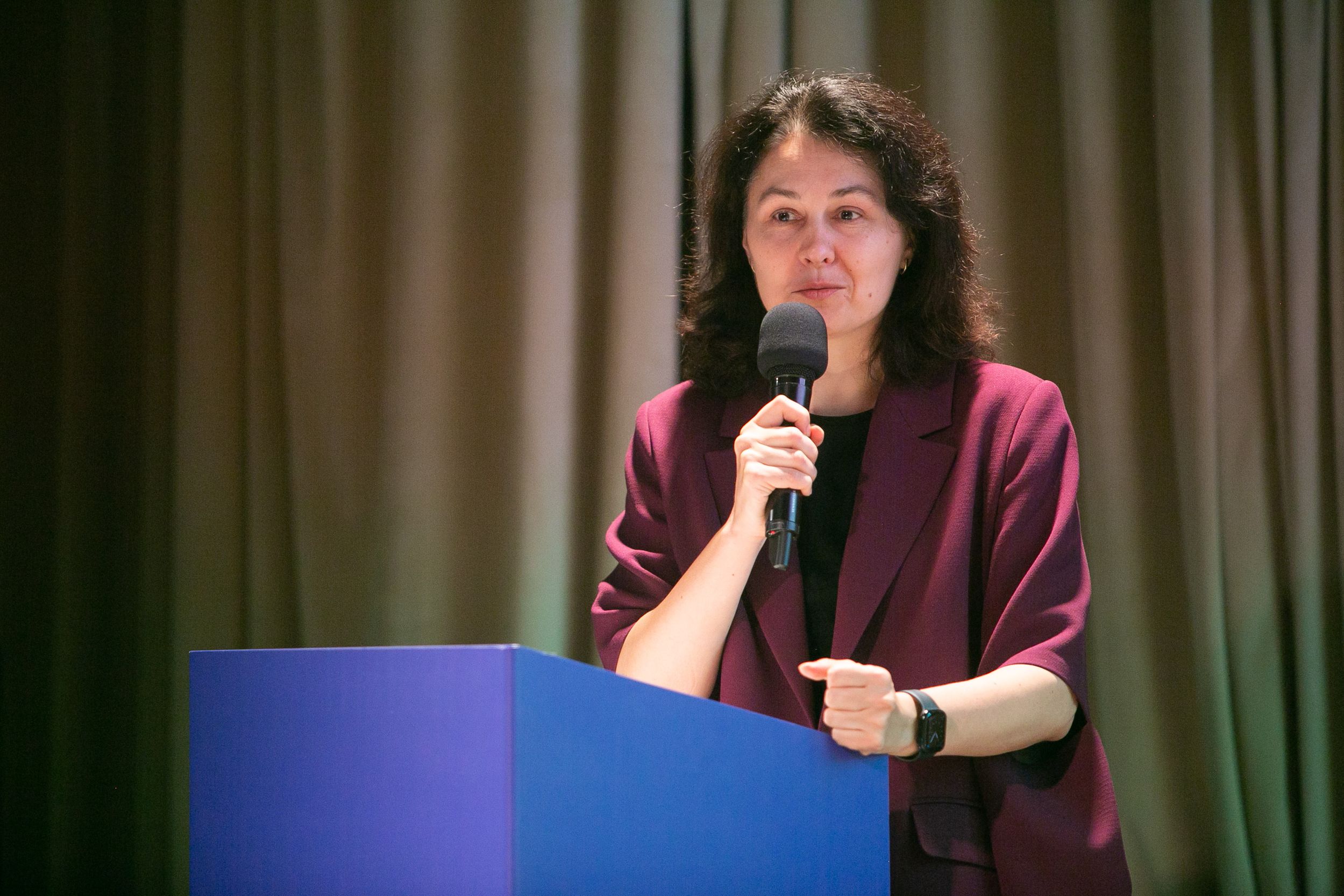
Oksana Belaichuk, Executive Director at Sber, spoke about career opportunities for students. According to her, Sber previously had a separate recruitment track for people with disabilities, but it was later discontinued. ‘We realised it was not necessary. First and foremost, when someone wants to work with us, we see a person—not a diagnosis or disability. We do not view people with disabilities as fundamentally different, and that is important. Sber has cultivated an environment of equal opportunities,’ she emphasised.
Sber firmly believes that there should be no distinctions or barriers, and the employment experience should be as seamless as possible. However, each case is unique and may not always be adequately addressed in legislation.
Internships at Sber are held twice a year and typically last between three and six months.
Mikhail Osokin, Deputy Chairman of the All-Russian Society of Disabled People, spoke about the ‘blind spots’ in employment pathways for graduates with disabilities and health limitations. He noted that there is no universal solution and that a vast toolkit is required—one that is tailored to the individual’s specific needs and diagnoses. The range of approaches should be as broad as possible.
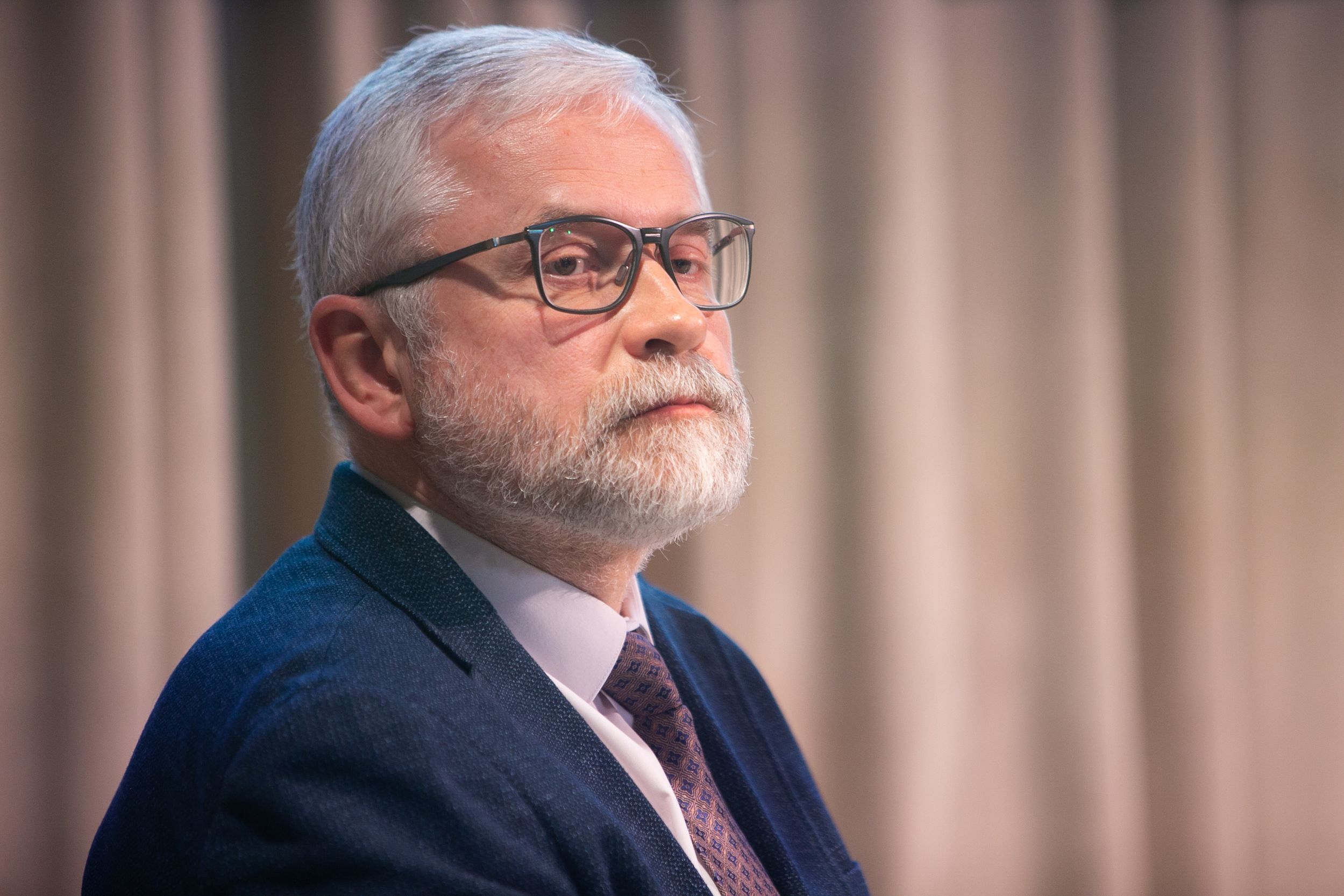
‘We often say, “You can do anything.” But the truth is, no one can do absolutely everything. Let’s be honest—a person with a disability needs to understand their own limitations and make informed decisions about their education and career path,’ he said.
Mikhail Osokin shared his experience at the Inclusive Education Centre at Vladimir State University. Visually impaired psychologists, for instance, realised that while many psychological tools rely on sight, they had their own strengths. One aromatherapist assessed psychological states through clients’ reactions to certain scents, and another could gauge levels of anxiety through vocal cues.
‘In reality, hiring someone who is intelligent, competent, and hard-working is easy—whether they have a disability or not. Becoming such a person is, in many ways, up to us. We need to continue learning and understanding ourselves better,’ Mikhail Osokin concluded.
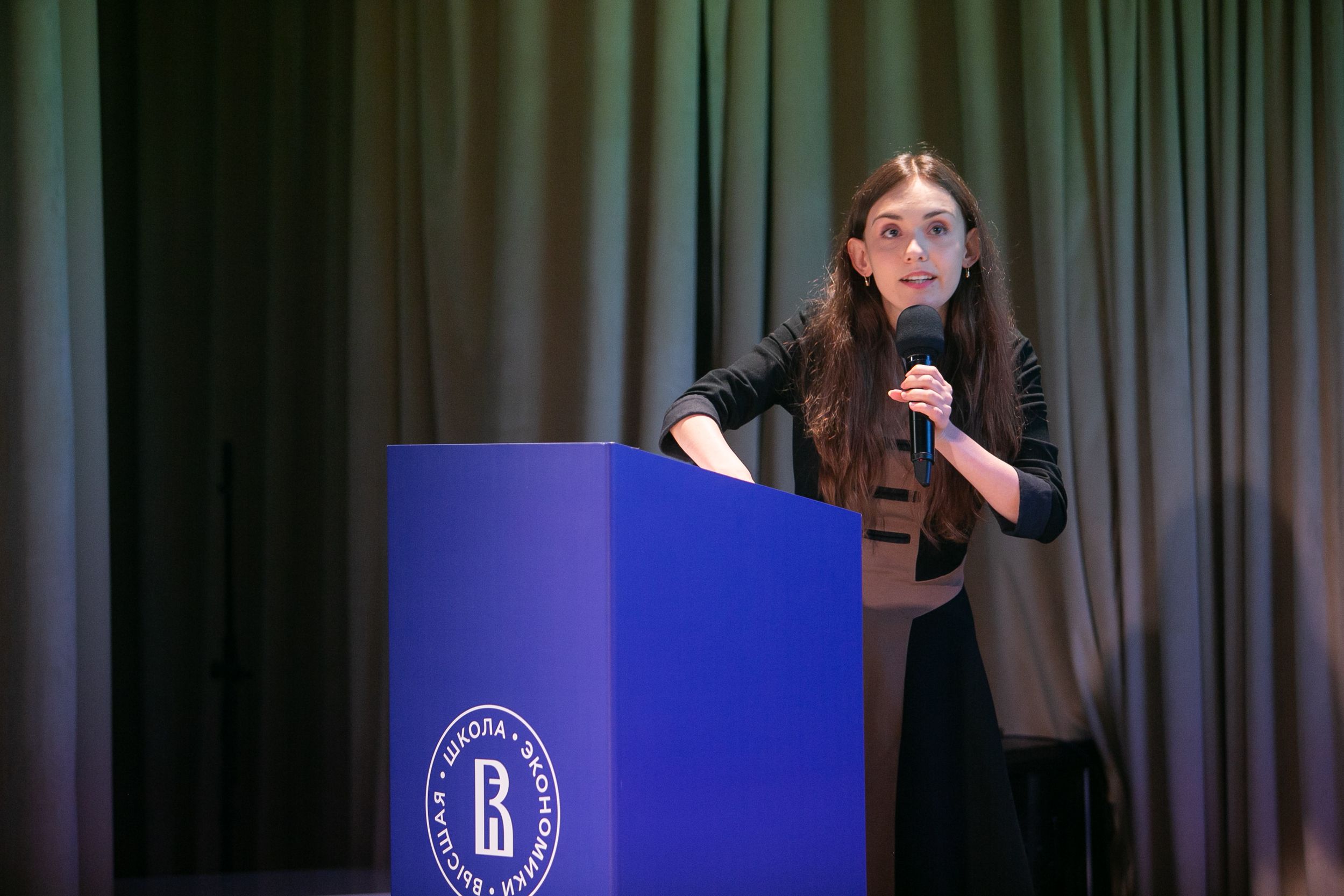
Arina Galyamova, an employment specialist at the Regional Society of Disabled People Perspektiva, presented youth programmes aimed at promoting employment among people with disabilities. The organisation has been active in this area for 28 years and is committed to the full inclusion of people with disabilities in all areas of life. Among its employment and career development initiatives are the annual ‘Path to a Career’ competition, the mentorship programme ‘Try a Profession in Practice,’ the ‘Career Counselling’ platform, and a job fair.
Marina Yefremenko, Senior Specialist in the Department of Sustainable Development and Corporate Culture at the audit and consulting firm Business Solutions and Technologies, spoke about her company's experience in this field. ‘It is no secret that the labour market is currently facing a shortage. Studies show that employees with disabilities are more loyal, engaged, and less likely to leave the company. Moreover, hiring people with disabilities has a positive impact on our existing staff,’ she shared.
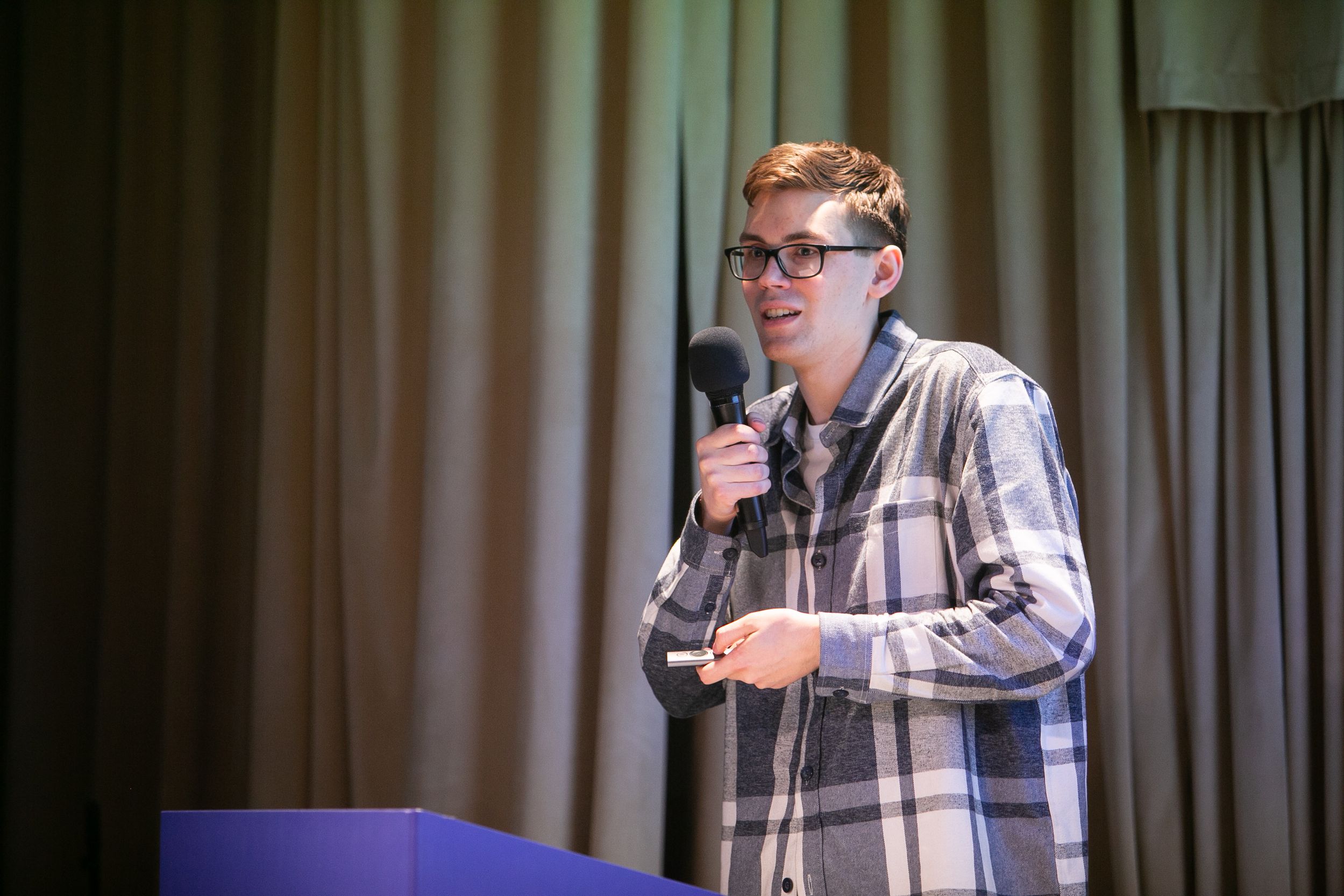
Mikhail Miroshnichenko, a first-year master’s student on the UX Analytics and Information Systems Design programme at HSE University-St Petersburg, presented his service for automating the personalised selection of job vacancies for people with health limitations. He explained that the idea behind the service is to create a platform that would make employment opportunities accessible online. According to Miroshnichenko, one of the biggest challenges is that people often do not know which jobs are suitable for their specific health conditions. The platform provides information on the compatibility of various vacancies with different types of disabilities and includes a filter based on relevant criteria.
Also sharing their experience were Mikhail Chetvertakov, Head of the public organisation ParaPlan; Alexey Trantsev, Development Director at the NGO Inclusive Resource Centre; and HSE University graduate Dzhembe Mikhailov.

